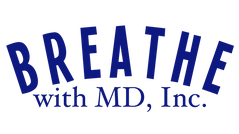Respiratory Failure
Continued weakness in the breathing muscles can eventually lead to respiratory failure. This happens when gas exchange (taking oxygen into the blood and removing carbon dioxide) in the lungs is significantly impaired. It causes oxygen levels that are significantly lower than normal (hypoxemia). It can also be accompanied by an increase in carbon dioxide levels (hypercapnia).
Symptoms of respiratory failure may include:
When respiratory failure begins, the respiratory muscles are working even harder, trying to compensate for the disturbance in gas exchange. This further fatigues the breathing muscles. Depending on your body’s pulmonary reserve (the maximum increase in minute ventilation you can maintain without exhausting your respiratory muscles), breathing muscle exhaustion can occur within hours or days.
If you experience symptoms of respiratory failure, seek immediate emergency medical attention, and explain or have someone accompanying you explain that you have a Neuromuscular Disease (NMD) and that those who live with NMD can have difficulty ventilating (moving air into and out of) their lungs. Surviving respiratory failure requires prompt assisted/mechanical ventilation (not supplemental Oxygen without ventilation) and airway clearance (use of a device such as the Philips Respironics CoughAssist) to boost your breathing. Being proactive and getting medical care from a clinician who specializes in the breathing problems of those living with NMD and receiving follow-up care should identify respiratory failure early and prevent a respiratory crisis. See also Oxygen Caution.
Note: This website should not be used as a substitute for medical care. For medical care or advice, please seek the care of a physician who specializes in the breathing issues of those with Neuromuscular Disease (NMD).
Continued weakness in the breathing muscles can eventually lead to respiratory failure. This happens when gas exchange (taking oxygen into the blood and removing carbon dioxide) in the lungs is significantly impaired. It causes oxygen levels that are significantly lower than normal (hypoxemia). It can also be accompanied by an increase in carbon dioxide levels (hypercapnia).
Symptoms of respiratory failure may include:
- Consistently sleeping more often to feel rested
- Constant fatigue even from basic activities of daily living
- Occasional confusion
- Difficulty concentrating and focusing on a task
- New muscle twitching (sometimes seen as hand tremors)
- Periodic or constant headache that does not respond to treatment
- Significant shortness of breath while at rest
- Significant problems lying down due to breathlessness
- Difficulty sleeping and/or waking
- Periods of microsleep (nodding off with very brief periods of sleep)
- Unconsciousness or blacking out (in extreme cases)
When respiratory failure begins, the respiratory muscles are working even harder, trying to compensate for the disturbance in gas exchange. This further fatigues the breathing muscles. Depending on your body’s pulmonary reserve (the maximum increase in minute ventilation you can maintain without exhausting your respiratory muscles), breathing muscle exhaustion can occur within hours or days.
If you experience symptoms of respiratory failure, seek immediate emergency medical attention, and explain or have someone accompanying you explain that you have a Neuromuscular Disease (NMD) and that those who live with NMD can have difficulty ventilating (moving air into and out of) their lungs. Surviving respiratory failure requires prompt assisted/mechanical ventilation (not supplemental Oxygen without ventilation) and airway clearance (use of a device such as the Philips Respironics CoughAssist) to boost your breathing. Being proactive and getting medical care from a clinician who specializes in the breathing problems of those living with NMD and receiving follow-up care should identify respiratory failure early and prevent a respiratory crisis. See also Oxygen Caution.
Note: This website should not be used as a substitute for medical care. For medical care or advice, please seek the care of a physician who specializes in the breathing issues of those with Neuromuscular Disease (NMD).
